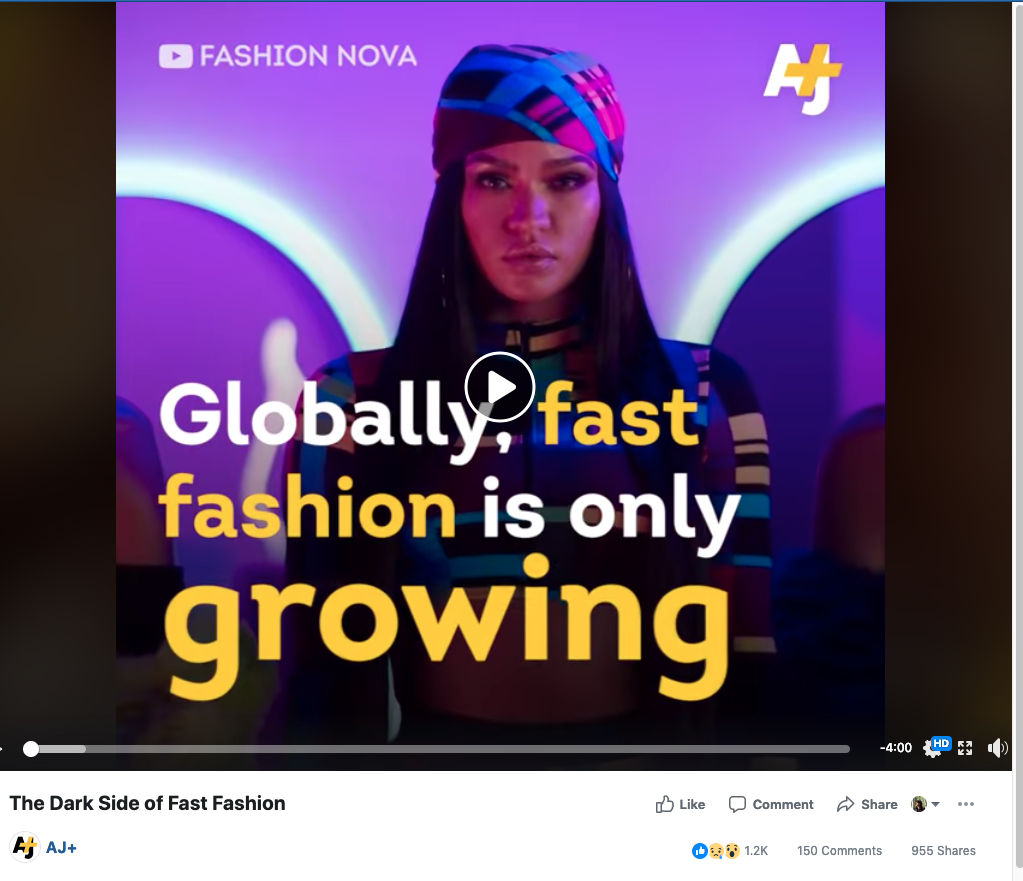AJ+ Investigates Fast Fashion's Dark Side and What We Can Do About It
A new video expose by AJ+ exposes the dark side of fast fashion and delves into ways we can disrupt the fashion industry and change it for the better. The segment features interviews with The Conscious Closet’s Elizabeth L. Cline, who explains the growing environment and human rights toll of fast fashion, from water pollution and textile waste to poverty pay. “The reason that fast fashion is cheap is partially because have access to an army of low-paid labor in the developing world. There are over 40 million garment workers, and they are almost all working in poverty,” Cline says, including those working in the United States. “Unsurprisingly, a lot of the brands that L.A. sweatshops are manufacturing for are fast fashion brands: Fashion Nova, Forever 21, Charlotte Russe, T.J. Maxx, Ross Dress for Less,” Cline says. The Garment Worker Center is one group combatting sweatshop conditions in the U.S.
Here are five ways we can disrupt fast fashion and build more conscious clothing habits:
Shop for sustainable fibers. Manufacturing new clothes has a tremendous impact on the environment. Recycled fibers use much less energy, water, and resources to make. They’re in a small percentage of clothing, for now, but we can ask brands to carry more. “It really does make a big difference if you can buy something that has a small percentage of recycled content,” Cline told AJ+.
Choose fair trade certified clothing. Fair trade clothing is clothing made without environmental degradation and pays a fair trade premium to workers and their communities. Fair Trade USA is one well-known certification for fair trade products carried by brands such as Madewell, PrAna, and Patagonia.
Rent your fashion. This is easier than ever thanks to rental companies like Rent the Runway, Le Tote, as well as a growing number brands, such as American Eagle and Ann Taylor, that offer rentals of their own products. “Fast fashion has created this incredible, catastrophic amount of clothing… most of it is going to Africa and a lot of it is not getting worn there. It’s getting landfilled,” says Cline, adding that the solution is to “lease more of our quick-turn, really fashionable clothing.”
Thrift, shop secondhand, and upcycle. Rather than buy new, buy pre-loved or reinvent your pieces in your wardrobe.
Hold brands accountable. Tell your favorite brands that you care about human rights, fair pay, and sustainability. “Brands are very sensitive to consumer feedback and criticism. Tell them that you care about these issues,” says Cline.
“Brands are very sensitive to consumer feedback and criticism. Tell them that you care about these issues.” — Elizabeth L. Cline

